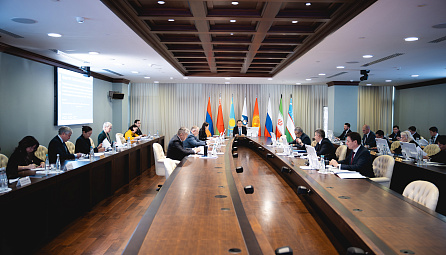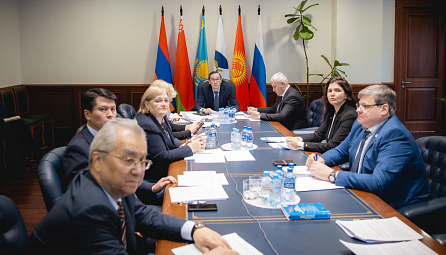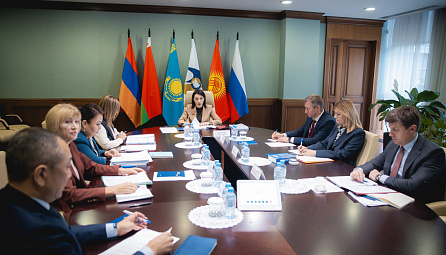31 Oct 2025
Natalia Alexandrovich Appointed Deputy Director of EEC Transport and Infrastructure Department
30 Oct 2025
EAEU technical regulation development as industry protection tool discussed in St. Petersburg
29 Oct 2025
EEC discussed expanding pharmaceutical products exports to markets of partner countries in trade agreements
29 Oct 2025
EEC and CIS improving information technologies in statistics

29 Oct 2025
EEC and WHO Regional Office for Europe deepen cooperation

25 Oct 2025
Bakytzhan Sagintayev conveyed greetings to Kassym-Jomart Tokayev on Republic Day
24 Oct 2025
Commission held seminar on expanding opportunities of EAEU countries' trade with China

23 Oct 2025
Andrey Slepnev: "UNCTAD plays an important role in facilitating restructuring of the international system based on open regionalism"

23 Oct 2025
EAEU countries discussed transport policy and road transport situation in EAEU

22 Oct 2025
EEC delegation took part in cis events on competition in Brest

22 Oct 2025
EEC discussed implementation of EAEU agreed agricultural policy

22 Oct 2025
Maksim Yermalovich and heads of EAEU national competition authorities discussed topical issues of competition in Brest
